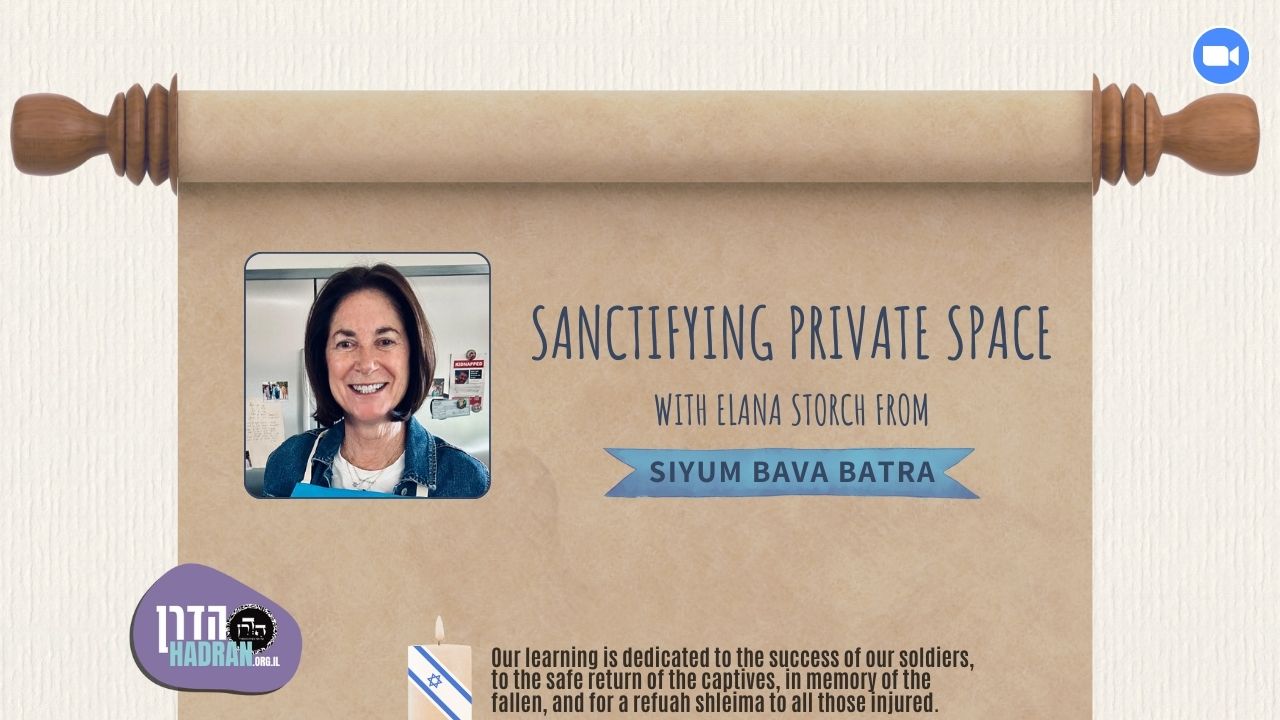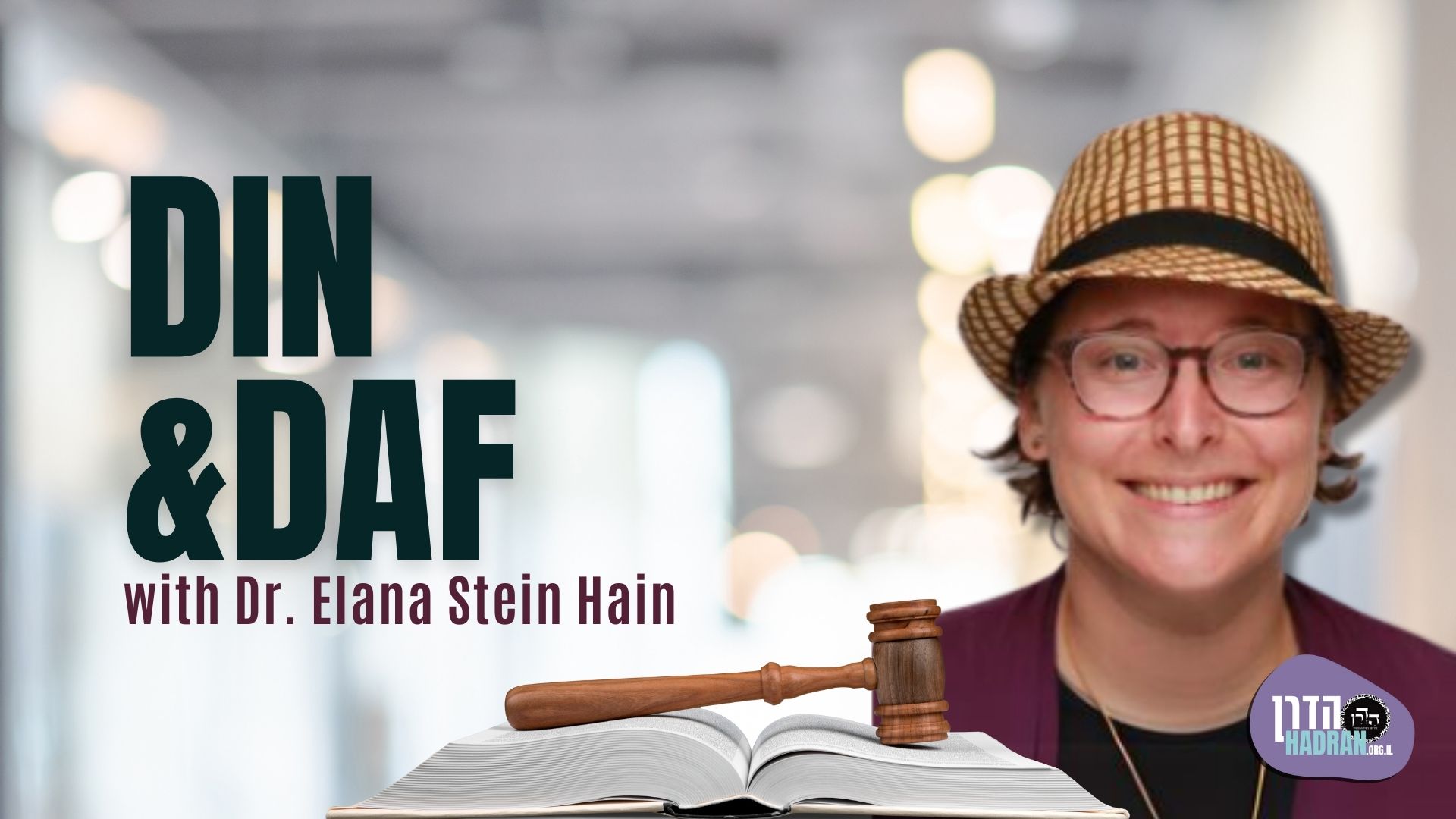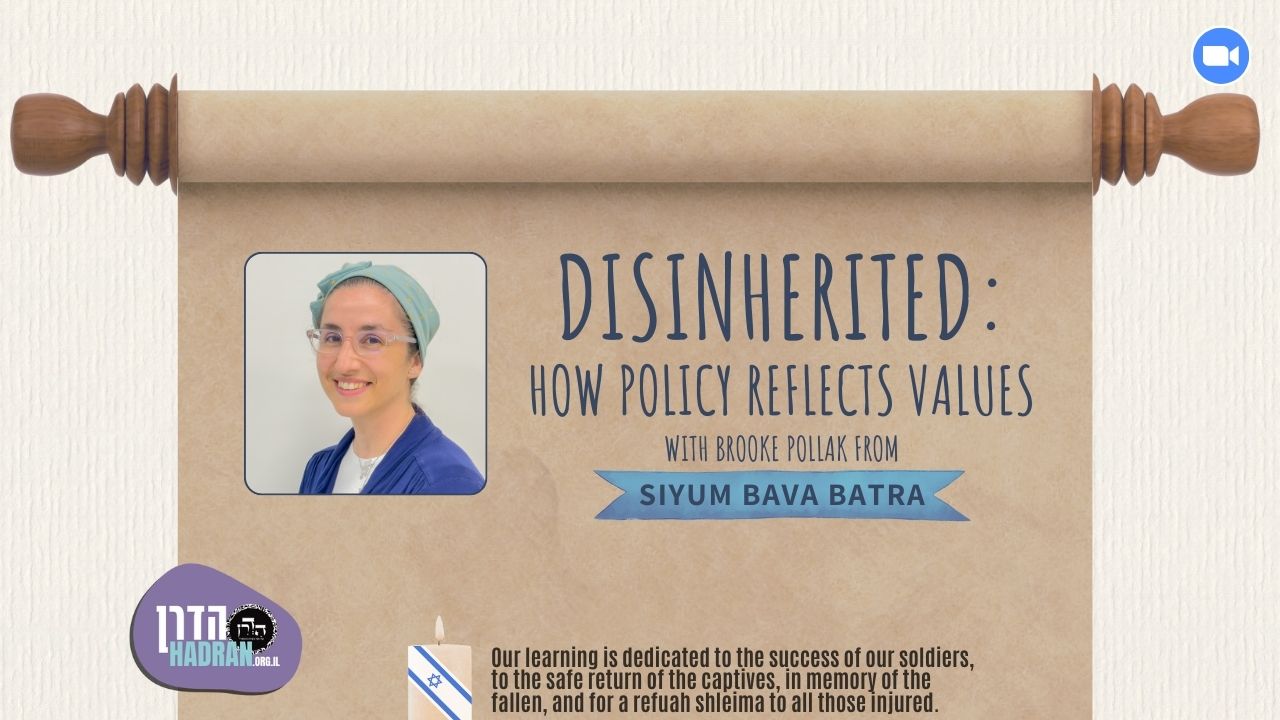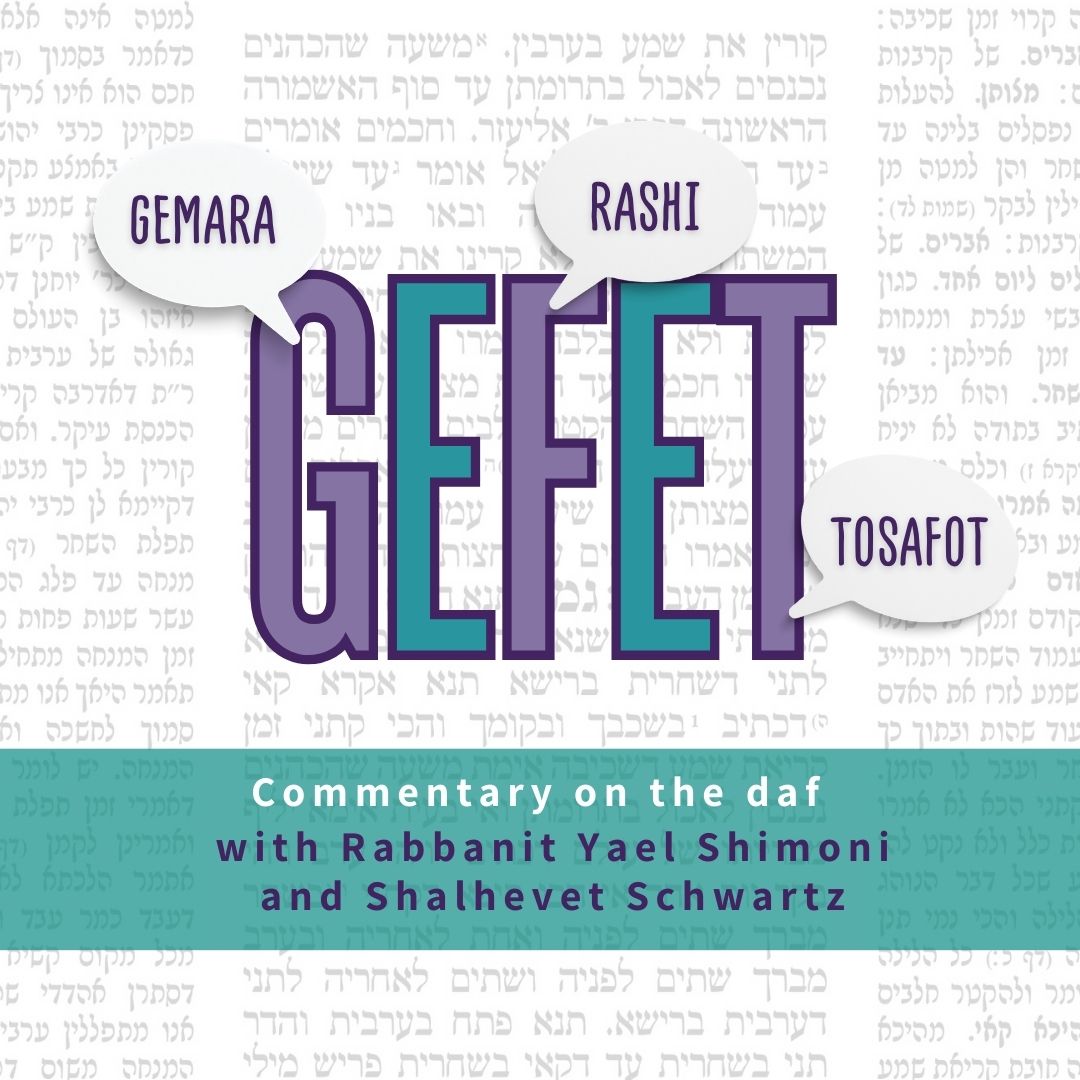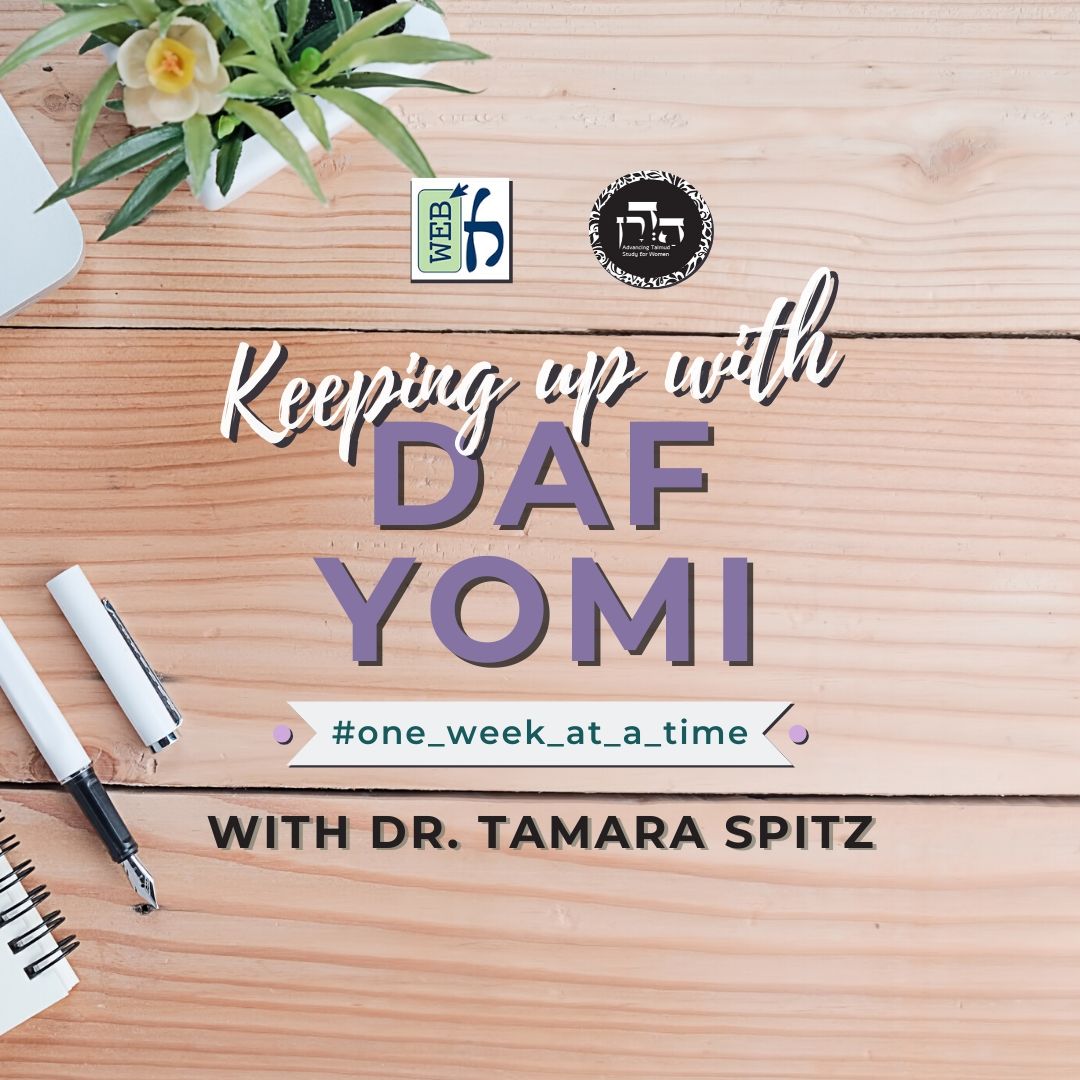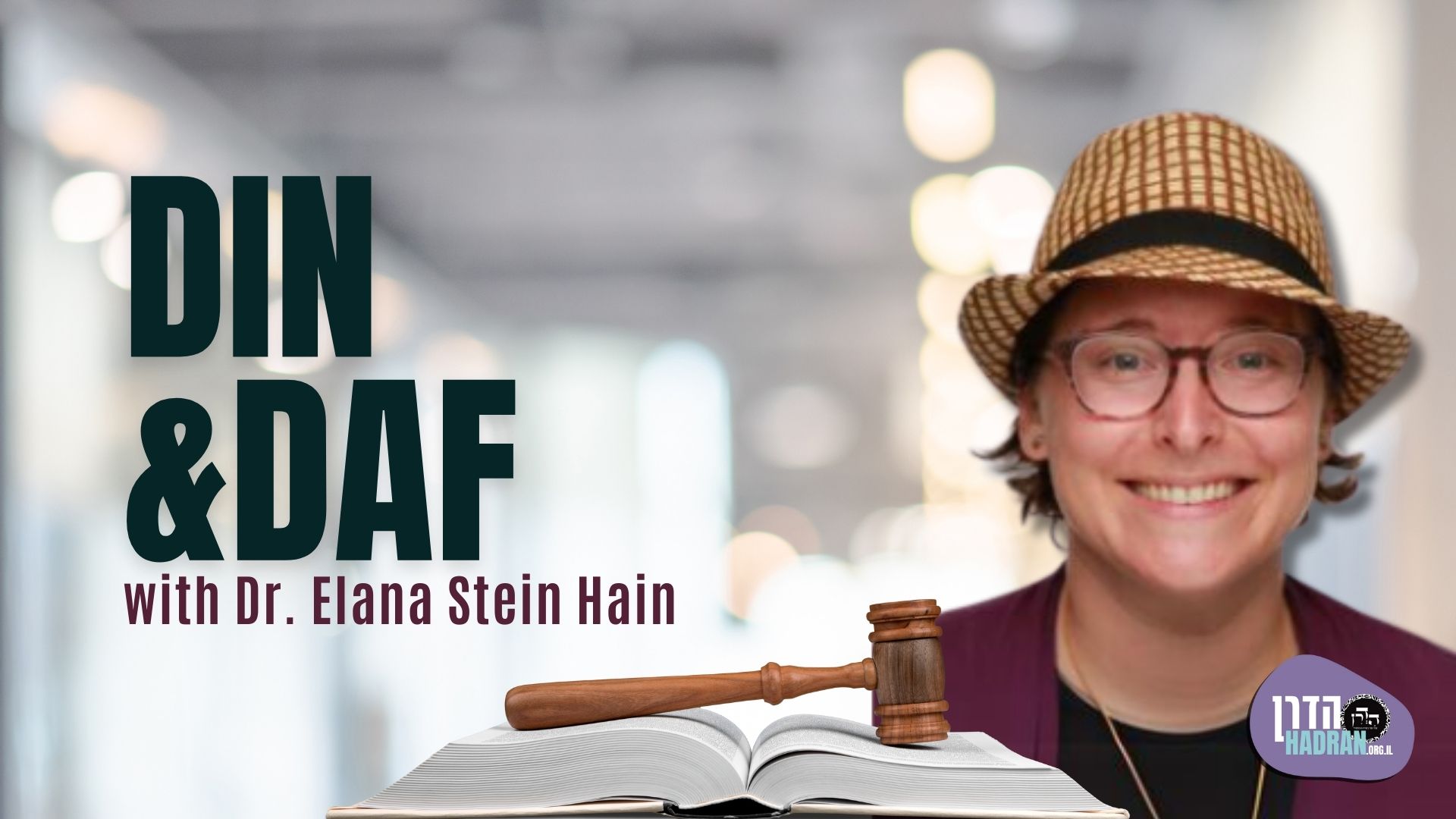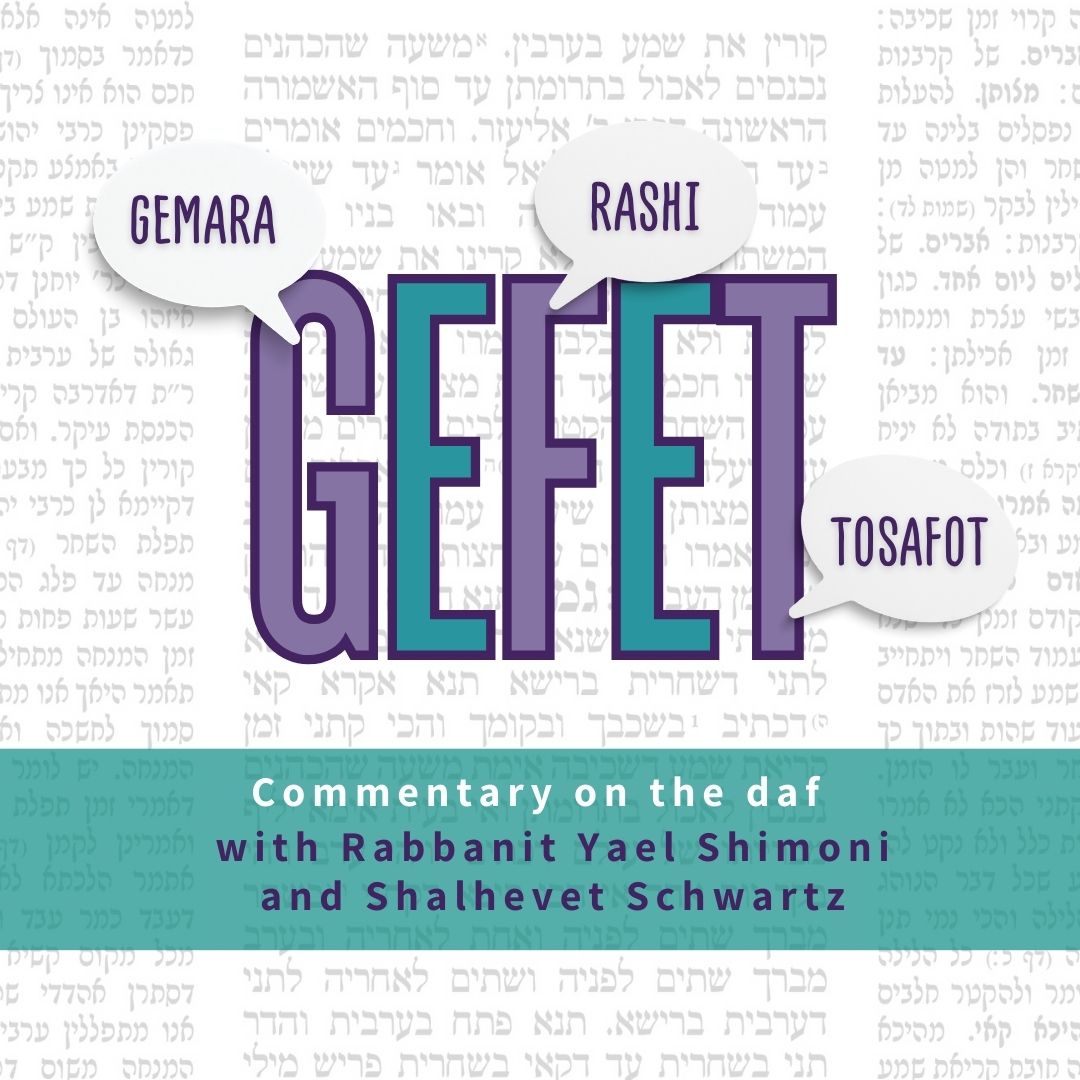Bava Batra 5
רוּנְיָא, אַקְּפֵיהּ רָבִינָא מֵאַרְבַּע רוּחוֹתָיו. אֲמַר לֵיהּ: ״הַב לִי כַּמָּה דִּגְדַרִי״, לָא יְהֵיב לֵיהּ. ״הַב לִי לְפִי קָנִים בְּזוֹל״, לָא יְהֵיב לֵיהּ. ״הַב לִי אֲגַר נְטִירוּתָא״, לָא יְהֵיב לֵיהּ.
It is related that a man named Ronya had a field that was surrounded by fields belonging to Ravina on all four sides. Ravina built partitions around his fields and said to him: Give me your share of the expense in accordance with what I actually spent when I built the partitions, i.e., half the cost of the partitions. Ronya did not give it to him. Ravina said to him: Give me then at least your share of the expense in accordance with a reduced assessment of the price of reeds. Ronya did not give it to him. Ravina said to him: Give me then at least the wage of a watchman. But he did not give even this to him.
יוֹמָא חַד הֲוָה קָא גָדֵר דִּיקְלֵי, אֲמַר לֵיהּ לַאֲרִיסֵיהּ: זִיל שְׁקוֹל מִנֵּיהּ קִיבּוּרָא דַאֲהִינֵי. אֲזַל לְאֵתוֹיֵי, רְמָא בֵּיהּ קָלָא. אֲמַר לֵיהּ: גַּלִּית דַּעְתָּךְ דְּמִינַּח נִיחָא לָךְ; לָא יְהֵא אֶלָּא עִיזָּא בְּעָלְמָא, מִי לָא בָּעֵי נְטִירוּתָא? אֲמַר לֵיהּ: עִיזָּא בְּעָלְמָא, לָאו לְאַכְלוֹיֵי בָּעֲיָא? אֲמַר לֵיהּ: וְלָא גַּבְרָא בָּעֵית דְּמַיכְלֵי לַהּ?
One day, Ronya was harvesting dates. Ravina said to his sharecropper: Go take a cluster [kibbura] of dates from him. The sharecropper went to bring them, but Ronya raised his voice at him in protest, whereupon Ravina said to him: You have revealed that you are pleased with the partitions and the protection that they provide you. Even if it were only a goat that entered your field, wouldn’t the field need safeguarding, to prevent the goat from eating the dates? Ronya said to him: If it were only a goat, doesn’t one need merely to chase it away [le’akhluyei]? No partition is required. Ravina said to him: But wouldn’t you need a man to chase the goat away? Pay me then at least the wage of a watchman.
אֲתָא לְקַמֵּיהּ דְּרָבָא, אֲמַר לֵיהּ: זִיל פַּיְּיסֵיהּ בְּמַאי דְּאִיפַּיַּיס; וְאִי לָא, דָּאֵינְנָא לָךְ דִּינָא כְּרַב הוּנָא אַלִּיבָּא דְּרַבִּי יוֹסֵי.
Ravina came before Rava to adjudicate the matter. Rava said to Ronya: Go appease Ravina with what he expressed his willingness to be appeased with, namely, the wage of a watchman. And if not, I will judge you in accordance with the ruling of Rav Huna in accordance with the opinion of Rabbi Yosei, and you will be required to pay half the cost of the partition based on what Ravina actually spent on it.
רוּנְיָא זְבֵן אַרְעָא אַמִּיצְרָא דְּרָבִינָא. סְבַר רָבִינָא לְסַלּוֹקֵי מִשּׁוּם דִּינָא דְּבַר מִצְרָא; אֲמַר לֵיהּ רַב סָפְרָא בְּרֵיהּ דְּרַב יֵיבָא לְרָבִינָא, אָמְרִי אִינָשֵׁי: אַרְבְּעָה לְצַלָּא, אַרְבְּעָה לְצַלָּלָא.
Incidental to that episode, the Gemara relates another encounter between Ravina and Ronya. Ronya once bought land adjoining property belonging to Ravina. Ravina considered removing him due to the halakha of one whose field borders the field of his neighbor. When land is up for sale, the owners of the adjoining fields have the right of first refusal. If one of the neighbors is willing to match the highest price being offered to the seller, that neighbor has the preemptive right to purchase the property, and if somebody else buys it, that buyer can be removed. Since Ravina owned the adjacent property, he thought that he enjoyed the right of first refusal. Rav Safra, son of Rav Yeiva, said to Ravina: People say: Four dinars for a large hide [tzalla], four for a small hide [tzelala]. Since Ronya also owned land bordering the desired parcel, you cannot remove him even though his plot of land is smaller than yours.
מַתְנִי׳ כּוֹתֶל חָצֵר שֶׁנָּפַל – מְחַיְּיבִין אוֹתוֹ לִבְנוֹתוֹ עַד אַרְבַּע אַמּוֹת. בְּחֶזְקַת שֶׁנָּתַן, עַד שֶׁיָּבִיא רְאָיָה שֶׁלֹּא נָתַן.
MISHNA: In the case of a dividing wall in a jointly owned courtyard that fell, if one of the owners wishes to rebuild the wall, the court obligates the other owner to build the wall with him up to a height of four cubits. If after the wall was built one of the neighbors claims he alone constructed it and the other did not participate in its building, the latter is nevertheless presumed to have given his share of the money, unless the claimant brings proof that the other did not give his part.
מֵאַרְבַּע אַמּוֹת וּלְמַעְלָן – אֵין מְחַיְּיבִין אוֹתוֹ. סָמַךְ לוֹ כּוֹתֶל אַחֵר, אַף עַל פִּי שֶׁלֹּא נָתַן עָלָיו אֶת הַתִּקְרָה – מְגַלְגְּלִין עָלָיו אֶת הַכֹּל. בְּחֶזְקַת שֶׁלֹּא נָתַן, עַד שֶׁיָּבִיא רְאָיָה שֶׁנָּתַן.
The court does not obligate the reluctant neighbor to contribute to the building of the wall higher than four cubits. But if the reluctant neighbor built another wall close to the wall that had been built higher than four cubits, in order to set a roof over the room that was thereby created, the court imposes upon him the responsibility to pay his share for all of the rebuilt wall, even though he has not yet set a roof over it. Since he has demonstrated his desire to make use of what his neighbor built, he must participate in the cost of its construction. If the builder of the first wall later claims that he did not receive payment from his neighbor, the neighbor is presumed not to have given his share of the money, unless he brings proof that he did in fact give money for the building of the wall.
גְּמָ׳ אָמַר רֵישׁ לָקִישׁ: הַקּוֹבֵעַ זְמַן לַחֲבֵירוֹ, וְאָמַר לוֹ: ״פְּרַעְתִּיךָ בְּתוֹךְ זְמַנִּי״ – אֵינוֹ נֶאֱמָן; וּלְוַאי שֶׁיִּפְרַע בִּזְמַנּוֹ. אַבָּיֵי וְרָבָא דְּאָמְרִי תַּרְוַיְיהוּ: עֲבִיד אִינִישׁ דְּפָרַע בְּגוֹ זִימְנֵיהּ – זִימְנִין דְּמִתְרְמוּ לֵיהּ זוּזֵי, אָמַר: אֵיזִיל אֶיפְרְעֵיהּ,
GEMARA: Reish Lakish says: If a lender set a time for another to repay the loan that he had extended to him and when the debt came due the borrower said to the lender: I already repaid you within the time, he is not deemed credible, as people do not ordinarily repay their debts before they are due. The lender would be happy if the borrower would only repay his debt on time. Abaye and Rava disagree with Reish Lakish, as they both say: A person is apt to repay his debt within its time, i.e., before it is due. This is because sometimes he happens to have money and the borrower says to himself: I will go and repay my debt
כִּי הֵיכִי דְּלָא לִיטְרְדַן.
so that he will not trouble me later by constantly demanding the money.
תְּנַן: – בְּחֶזְקַת שֶׁנָּתַן, עַד שֶׁיָּבִיא רְאָיָה שֶׁלֹּא נָתַן.
The Gemara attempts to bring a proof in support of the opinion of Abaye and Rava from what we learned in the mishna (5a): If after the wall was built one of the neighbors claims he alone constructed it and the other did not participate in its building, the latter is nevertheless presumed to have given his share of the money, unless the claimant brings proof that the other did not give his part.
הֵיכִי דָמֵי? אִילֵימָא דַּאֲמַר לֵיהּ: ״פְּרַעְתִּיךָ בִּזְמַנִּי״, פְּשִׁיטָא בְּחֶזְקַת שֶׁנָּתַן! אֶלָּא לָאו דַּאֲמַר לֵיהּ: ״פְּרַעְתִּיךְ בְּתוֹךְ זְמַנִּי״? אַלְמָא עֲבִיד אִינִישׁ דְּפָרְעֵיהּ בְּתוֹךְ זִמְנֵיהּ! שָׁאנֵי הָכָא, דְּכׇל שָׂפָא וְשָׂפָא זִימְנֵיהּ הוּא.
The Gemara clarifies the matter: What are the circumstances of the case under discussion? If we say that he said to him: I paid you at the time when the payment became due, when the wall was completed, it is obvious that he is presumed to have given his part. Rather, is it not that he said to him: I paid you within the time before the payment became due, while the wall was still under construction? And with regard to such a case the mishna states that he is presumed to have given his share. Apparently, a person is apt to repay his debt within its time, in accordance with the opinion of Abaye and Rava. The Gemara rejects this proof: Here it is different, because the time to pay is upon the completion of each and every row. Payment does not become due specifically at the completion of the entire wall.
תָּא שְׁמַע: בְּחֶזְקַת שֶׁלֹּא נָתַן, עַד שֶׁיָּבִיא רְאָיָה שֶׁנָּתַן.
The Gemara further suggests: Come and hear a proof in support of the opinion of Reish Lakish from the continuation of the mishna (5a): The court does not obligate the reluctant neighbor to contribute to the building of the wall higher than four cubits. But if the reluctant neighbor built another wall close to the wall that had been built higher than four cubits, in order to set a roof over the room that was thereby created, the court imposes upon him the responsibility to pay his share for all of the rebuilt wall, even though he has not yet set a roof over it. If the builder of the first wall later claims he did not receive payment from his neighbor, the neighbor is presumed not to have given his share of the money, unless he brings proof that he did in fact give money for the building of the wall.
הֵיכִי דָּמֵי? אִילֵימָא דַּאֲמַר לֵיהּ: ״פְּרַעְתִּיךָ בִּזְמַנִּי״, אַמַּאי לָא? אֶלָּא לָאו דַּאֲמַר לֵיהּ: ״פְּרַעְתִּיךְ בְּתוֹךְ זְמַנִּי״? אַלְמָא לָא עֲבִיד אִינִישׁ דְּפָרַע בְּגוֹ זִימְנֵיהּ! שָׁאנֵי הָכָא, דְּאָמַר: מִי יֵימַר דִּמְחַיְּיבוּ לִי רַבָּנַן.
The Gemara clarifies the matter: What are the circumstances of the case under discussion? If we say that he said to him: I paid you at the time that the payment became due, when the wall was completed, why is he not deemed credible? Rather, is it not that he said to him: I paid you within the time before the payment became due, and therefore he is not deemed credible? Apparently, a person is not apt to repay his debt within its time, in accordance with the opinion of Reish Lakish. The Gemara rejects this proof: Here it is different, since the reluctant neighbor says: Who says that the Rabbis will obligate me to pay for this wall? In such a case he certainly does not pay before the payment becomes due.
רַב פָּפָּא וְרַב הוּנָא בְּרֵיהּ דְּרַב יְהוֹשֻׁעַ עָבְדִי כְּאַבַּיֵּי וְרָבָא. מָר בַּר רַב אָשֵׁי עָבֵד כְּרֵישׁ לָקִישׁ. וְהִלְכְתָא כְּרֵישׁ לָקִישׁ, וַאֲפִילּוּ מִיַּתְמֵי; וְאַף עַל גַּב דְּאָמַר מָר: הַבָּא לִיפָּרַע מִנִּכְסֵי יְתוֹמִים – לֹא יִפָּרַע אֶלָּא בִּשְׁבוּעָה; חֲזָקָה: לָא עֲבִיד אִינִישׁ דְּפָרַע בְּגוֹ זִימְנֵיהּ.
Rav Pappa and Rav Huna, son of Rav Yehoshua, acted in such a case in accordance with the opinion of Abaye and Rava. Mar bar Rav Ashi acted in accordance with the opinion of Reish Lakish. The Gemara concludes: And the halakha is in accordance with the opinion of Reish Lakish that one is not deemed credible when he says that he repaid a loan before it became due. And if the debtor dies, the court collects payment even from his orphans based on this assumption. And even though the Master said that one who comes to collect money from the property of orphans cannot collect unless he first takes an oath that he did not already collect the debt from the deceased, here he can collect without taking an oath because there is a presumption that a person is not apt to repay his debt within its time.
אִיבַּעְיָא לְהוּ: תְּבָעוֹ לְאַחַר זְמַן, וְאָמַר לוֹ: ״פְּרַעְתִּיךָ בְּתוֹךְ זְמַנִּי״, מַהוּ? מִי אָמְרִינַן: בִּמְקוֹם חֲזָקָה – אָמְרִינַן ״מַה לִּי לְשַׁקֵּר״;
A dilemma was raised before the Sages: What is the halakha if the lender stipulated a time with the borrower for repayment of the debt, and he demanded payment of the money after the time that the payment became due had passed, and the borrower said to him: I already repaid you within the time before the payment became due? Do we say that even where there is a presumption against someone’s claim, as in this case where there is a presumption that people do not pay their debts before they become due, we say that the borrower can claim: Why would I lie? If one of the litigants could have advanced a claim more advantageous to his cause than the one he actually did, the assumption is that he is telling the truth. Consequently, in this case had the borrower wished to lie, he could have said that he repaid his debt when it became due, and he would have been deemed credible. Therefore, when he claims that he repaid it before it came due he should also be deemed credible.






